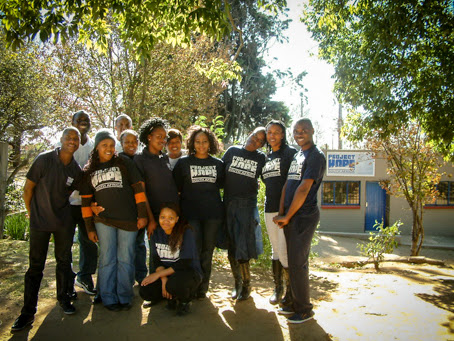“What counts in
life is not the mere fact that we have lived. It is what difference we have
made to the lives of others that will determine the significance of the life we
lead”
– Nelson Mandela
– Nelson Mandela
What is ”Mandela Day”?
Information from the Nelson
Mandela Foundation:
Mandela Day is a global call to action for citizens of the world to take up the challenge and follow in the admirable footsteps of Nelson Mandela, a man who transformed his life, served his country and freed his people. Its objective is to inspire individuals to take action to help change the world for the better and in so doing, to build a global movement for good.
”Take action, Inspire
change – Make every day a Mandela Day” - These inspirational words from The
Nelson Mandela Foundation encourage each one of us to simply do good every day,
living Nelson Mandela’s legacy and helping to build the country of our dreams.
Mandela Day is dynamic and ever-changing: it belongs to everyone and can take
place anywhere, at any time. Mandela Day is a global call to action for citizens of the world to take up the challenge and follow in the admirable footsteps of Nelson Mandela, a man who transformed his life, served his country and freed his people. Its objective is to inspire individuals to take action to help change the world for the better and in so doing, to build a global movement for good.
Nelson Mandela International Day was launched in recognition of Nelson Mandela’s birthday on 18 July, 2009 via unanimous decision by the UN General Assembly. It is more than a celebration of Nelson Mandela’s life and legacy. It is a global movement to honour his life’s work and act to change the world for the better.
The HOPE Centre supports Itsoseng
in honour of Mandela Day, 17th July
Project HOPE South Africa is supporting Itsoseng,
an informal settlement in the outskirts of Johannesburg, in honour of Mandela
day on the 17th of July by reviving their community garden. Project HOPE aims
to plant herbs and provide training to community gardeners to make the revived
garden sustainable.
Health awareness is already a key focus for Project
HOPE’s HOPE Centre staff and we are constantly identifying ways to raise awareness in new communities. The Mandela Day project in Itsoseng is no
exception:
”We already have a success story from Kopano
Garden in Zandspruit where community members and patients from the HOPE Clinic
are involved, working together to make some extra money, learn about gardening,
and for most; to better their health”. We see a high interest for creating the
same in Itsoseng and want to make it happen.” – says Portia Zulu, Health
Education & Training Officer for Project HOPE South Africa.
We are hoping for a high level
of interest on Mandela Day – from both community members and volounteers. The
aim of the project is to revive the community garden and train community members
on how to take care of their garden so that it is sustainable. The aim of the
garden is to promote a healthy lifestyle, reduce food security issues, and
create an income for the garden members.
We need YOUR help to make this happen!
To turn this piece of land into a sustainable and
lush garden of herbs, we need your help! The 17th of July, in honour of Mandela
Day, is the day when the transformation is happening.
So, do a good deed and make a difference for the
community members in Itsoseng! Come and help us transform this land and hand it
over to the community.
We are in need of sponsors and donations
Our goal is to make this a sustainable project
which means we are in need of kind sponsors and donations, both for Mandela Day
itself and for the long-term.
If your company or organization sponsors the Itsoseng
Garden, we are happy to show everyone our gratitude on social media and on our website
in appreciation.
See the list of what we need here:
See the list of what we need here:
Thank
You!
Please contact Refilwe or Portia to let us know of your
interest in contributing or for further questions or information.
Refilwe Lechoba – HOPE Centre Program Coordinator
Portia Zulu - Health Education &
Training Officer



















